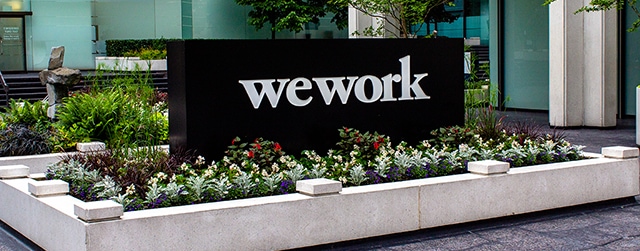WeWork will likely be one the largestIPOs of 2019—and one of the most problematic.

Widely expected to be one the largestinitial public offerings (IPOs) this year, the company’sprospectusraises questions about WeWork’s corporate governance and adds to conflict of interest concerns involving the company’s founder and CEO Adam Neumann.
WeWork has pioneered the space-as-a-service business model. Instead of owning property, the company leases it from a landlord, brings in designers and architects to create an appealing workspace and then offers flexible access to members ranging from freelancers to global brands such as Microsoft, Visa and KPMG. One of those landlords was Neumann himself who initially bought ownership stakes in four buildings (eventually rising to 10) and leased them back to WeWork in return for more than $20 million in rent payments over the past three years. Neumann claimed he took this unconventional step to convince landlords about the viability of the business model and has since sold his stakes at cost to a WeWork subsidiary called ARK which invests in property on behalf of the parent company.
Themain risk stemming from the company’s corporate structure should sound familiar to investors in tech IPOs such as Lyft and Pinterest. Neuman will retain majority control of the company following the IPO. He personally owns over 112 million Class B shares and one million Class C shares with 20 voting rights compared to one for the Class A shares that will be issued to investors. We Holdings LLC, an investment vehicle set up by Neumann and his cofounder Miguel McKelvey, also owns 111 million Class B shares.
“As a controlled company, WeWork will not be subject to certain corporate governance requirements such as having a majority of independent board members, although it may choose to do so,”said Kevin McNeil, Director of US Corporates at Fitch Ratings which downgraded the company’s bonds to six notches below investment grade following the release of WeWork’s IPO prospectus. “Financial policy and capital allocation decisions may not necessarily be subject to independent scrutiny.”
Neumann’s dependence on WeWork as his personal lender might be another cause for caution. To make up for his inability to sell equity, the company issued loans worth over $30 million to Neumann and We Holdings between 2013 and 2016 at favorable interest rates, which he repaid in cash or stock. The company then lent the CEO $362 million in April 2019, close to when the IPOfiling was announced, in lieu of an early exercise of stock options. He settled this loan in August 2019.
“Generally speaking, the underwriting team wants the insiders to hold on to shares and not give any indication that they want out,”explained Bob Lamm, chair of law firm Gunster’s Securities and Corporate Governance practice and a former director of the Society for Corporate Governance. “Neumann’s latest transaction suggests extreme confidence in the success of the offering, arrogance, or perhaps some of both.”
The prospectus also noted that WeWork executivesmay have inadvertentlyviolated regulations by making statements during an SEC-designated quiet period ahead of the company’s IPO. Duringinterviews withAxiosandBusiness Insiderin May 2019, one month after WeWork announced it had filed to go public in December 2018, Neumann and Chief Financial Officer Artie Minson discussed business strategy and results. The company denies breaking the rules, although if a court rules otherwise, WeWork would have to repurchase shares issued in the upcoming IPO and pay statutory interest.
The accounting figures contained in the prospectus also revealed that the company’s cash flow is not positive and that revenue growth has been consistently outstripped by the growth of losses with no clear path to profitability after nine years of operation. Despite this, the company is valued at $47 billion and hopes to raise $3.5 billion by going public.



